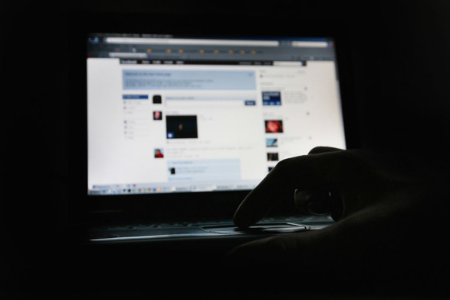87% of local officials surveyed observed an increase in attacks on public officials in recent years, while 81% reported having experienced harassment, threats and violence themselves.
WASHINGTON, D.C. – The National League of Cities (NLC) today released a new report titled “On the Frontlines of Today’s Cities: Trauma, Challenges and Solutions,” which finds that harassment, threats and violence directed at local elected officials are rising at an alarming rate, with these concerning behaviors most frequently occurring on social media platforms. Eighty-seven percent of local officials surveyed observed an increase in attacks on public officials in recent years, while 81 percent reported having experienced harassment, threats and violence themselves.
“Personal attacks. Physical assaults. Cyberbullying directed at themselves their children and families – all while having to manage multiple crises in their communities – this is what it means to be a public servant in 2021,” said Clarence E. Anthony, NLC CEO and Executive Director. “It’s too easy to forget that our local leaders are also human. Along with their titles of ‘mayor,’ ‘councilmember,’ or ‘commissioner’ – they are also ‘parent,’ ‘friend,’ ‘neighbor,’ and so much more.”
Many local officials indicated an uptick in harassment, threats and violence over the course of their time in office, but this behavior has dramatically worsened since the start of the pandemic, according to the report.
“I think you’re seeing a lot of people choosing not to serve in public office anymore,” said Atlanta Mayor Keisha Lance Bottoms in an interview for the report. “People are choosing emotional and mental health and well-being over public service, and that is a dangerous point for us to be in as a country.”
The local officials surveyed said incidences of harassment and attacks make it difficult for them to do their jobs. They citied challenges such as mental fatigue and burnout, not wanting to answer phone calls from constituents for fear of verbal harassment and not wanting to use social media platforms to engage with their constituents.
“Everyone needs an inner circle of support to get through the rough spots,” said Mayor Sharon Weston-Broome of Baton Rouge, LA. “And you have to remember why you did this. That keeps you pressing on during the trials and tribulations.”
Other elected officials report being targeted due in part to their race, sexual orientation, gender or political affiliation. Among the incidents described in the report:
- Bolingbrook, IL Mayor, Roger Claar had his home vandalized and was likened to a Nazi due to his support for former President Trump.
- Minnetonka, MN Councilmember Deb Calvert and her fellow councilmembers received hundreds of emails and phone calls threatening and verbally abusing them in the run-up to and after a vote on mask mandates.
- Anchorage, AK Assemblymember Christopher Constant, a member of the LGBTQ+ community, was subjected to homophobic remarks and even death threats. Assemblymember Constant also found a game camera, used for hunting, mounted on a tree outside and pointed at his house.
The report highlights the negative impacts these kinds of attacks have on local governments’ abilities to serve their communities, with more elected officials resigning or choosing not to run for reelection because of the potential risks to their safety and well-being.
“I think in the last year or so, things have become uglier,” said Mayor Grover Robinson of Pensacola, FL. “I’m worried about our city in the current political climate, where we’re seeing people’s behavior driven by politics rather than how we can make our community better. That certainly makes it harder for those of us who are local leaders to do our jobs.”
This harassment is most frequently occurring on social media, with 79 percent of local officials surveyed indicating they have experienced harassment and threats on platforms such as Facebook and Twitter. Officials also reported attacks in other online venues such as email and public forums (66 percent) and in public city meetings (64 percent).
“The reality of social media as a driving factor in our civic life is not new, but increasingly it’s used to intimidate people through the spread of misinformation, personal attacks and physical threats that target you and your family,” said Mayor Jake Spano of St. Louis Park, MN. “Like any tool, social media has powerful upsides. But it also provides anonymity without accountability, which can leave you feeling anywhere from frustrated to fearful for people’s safety.”
The report recommends several steps communities can take in the face of rising attacks, including enhancing physical security, instituting codes of conduct for public meetings and implementing mental health and trauma management strategies.
The findings in the report are based on nine in-depth interviews and a survey of 112 local public officials, in order to learn about their experiences with harassment, threats and violence. To read the full report, click here.
###
The National League of Cities (NLC) is the voice of America’s cities, towns and villages, representing more than 200 million people across the country. NLC works to strengthen local leadership, influence federal policy and drive innovative solutions. Stay connected with NLC on Facebook, Twitter, LinkedIn and Instagram.
